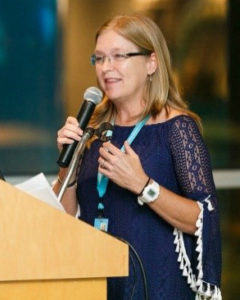
Kelly Thorvalson, Conservation Programs Manager at the South Carolina Aquarium Speaker for “Groundbreaking News: Journey to Recovery”
“In the 16 years spent rehabilitating sick and injured sea turtles, the South Carolina Aquarium has admitted fourteen patients with plastics in their intestinal tracts, nine of those in the last two years. Sea turtles serve as excellent sentinels of the marine ecosystem providing warnings of emerging health hazards from the ocean. The warning signs of plastic pollution are clear.”
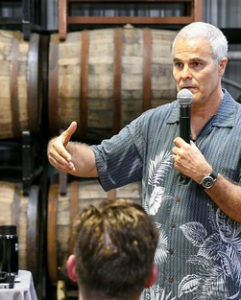 Dr. Jeffrey Payne, Director at NOAA Office for Coastal Management
Speaker for “A Need to Sea Change: Charleston’s Resilience”
Dr. Jeffrey Payne, Director at NOAA Office for Coastal Management
Speaker for “A Need to Sea Change: Charleston’s Resilience”
“With rising sea levels and more routine shallow coastal flooding during tidal cycles, we are likely to see an increased frequency of re-suspension of debris, including plastics, in our storm sewer systems and on the land surface.”
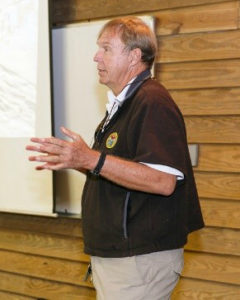 Dr. Al Segars, Veterinarian for the South Carolina Department of Natural Resources
Speaker for “Knot the Typical Connection: Horseshoe Crabs and Shorebirds”
Dr. Al Segars, Veterinarian for the South Carolina Department of Natural Resources
Speaker for “Knot the Typical Connection: Horseshoe Crabs and Shorebirds”
“Imagine coming across a horseshoe crab trapped on the shore in a plastic bag, or a loggerhead entangled in fishing line. There are few marine creatures that I have not seen directly impacted by plastics and marine debris deposited by humans into our coastal waters….dolphins, whales, sea turtles, fish, terrapins, horseshoe crabs, seabirds…”
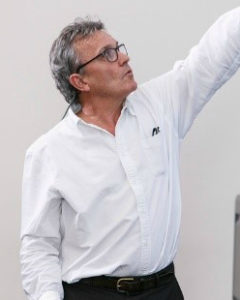 Dr. Gavin Naylor, Professor of Biology at the College of Charleston
Speaker for “Branch Out: Shark and Ray Evolution”
Dr. Gavin Naylor, Professor of Biology at the College of Charleston
Speaker for “Branch Out: Shark and Ray Evolution”
“Most people are horrified when they see images of hundreds of dead and rotting fishes entangled in abandoned “ghost” drift nets on the high seas. The impact of plastics is much more sinister because most of the damage that is caused by plastics is not as “visible”. For example, while most of us have seen heart-wrenching images of emaciated animals that have ingested a plastic bag or have been entangled in beer-can plastic, the vast majority of animals that die as a result of plastic ingestion or entrapment go undocumented. Furthermore the system-wide impacts of plastics, their breakdown products and microplastic beads that are routinely used in several industries, are only just beginning to be understood. Initial findings suggest that the long term health implications for marine systems of such plastics are alarming and have the potential to be catastrophic.”
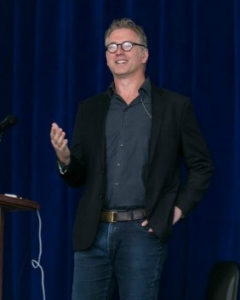 Dr. Wallace J. Nichols, marine biologist and bestselling author
Speaker for “Blue Mind: Water For Your Well-being”
Dr. Wallace J. Nichols, marine biologist and bestselling author
Speaker for “Blue Mind: Water For Your Well-being”
“When the ribbons of land and water along our oceans and wild waterways are spoiled [by plastic pollution], society is also robbed of some of its best sources of awe, creativity, escape, happiness, healing, inspiration, introspection, joy, peace, play, privacy, relaxation, romance, solitude, transcendence, wonder… I could go on. When plastic replaces wild nature, these benefits evaporate quickly and are replaced by “red mind” emotions including accusation, anger, anxiety, blame, disappointment, disgust, disrespect, frustration, grief, helplessness, resentment, sadness and stress.”
Join us on March 30th for the Holland Lifelong Learning finale, “Plastic Planet: Turning the Tides on the Plastic Pollution Crisis”

